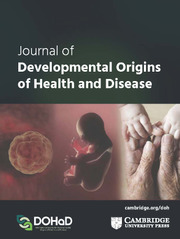
“The cannabinoid type 2 receptor (CB2) has recently emerged as an important therapeutic target for cancer as well as cardiovascular diseases. The CB2 receptor downregulation has been reported in solid tumors and cardiovascular diseases, therefore the CB2receptor activation has been considered as a viable strategy for chemotherapy as well as cardioprotection.
In chemotherapy, doxorubicin (DOX) is an important drug that continues to be the mainstay of chemotherapy in solid tumors, leukemia, and lymphoma. However, the use of DOX is often limited due to its lethal cardiotoxicity. Considering the role of CB2 receptors in cardiovascular diseases and cancer, the activation of CB2 receptors may protect against DOX-induced chronic cardiotoxicity in rats.
In the present study, we investigated the cardioprotective effect of a selective CB2 receptor agonist; β-Caryophyllene (BCP), a natural bicyclic sesquiterpene, against DOX-induced chronic cardiotoxicity in rats. AM630, a CB2 receptor antagonist was administered as a pharmacological challenge prior to BCP treatment to demonstrate CB2 receptor mediated cardioprotective mechanism of BCP. DOX (2.5 mg/kg) was injected intraperitoneally once a week for five weeks to induce chronic cardiotoxicity in rats.
BCP was also injected into rats six days a week for a total duration of five weeks. DOX induced a significant decline in cardiac function and oxidative stress evidenced by the depletion of antioxidant enzymes, glutathione, and increased lipid peroxidation. DOX also triggered activation of nuclear factor kappa B (NF-κB) and increased the levels of pro-inflammatory cytokines (TNF-α, IL-6, and IL-1β) and expression of the inflammatory mediators (iNOS and COX-2) in the heart.
Furthermore, DOX also upregulated the expression of pro-apoptotic markers such as Bax, p53, cleaved PARP, active caspase-3 and downregulated anti-apoptotic marker Bcl-2 in the myocardium. BCP treatment exerted significant cardioprotective effect by salvaging the heart tissues, improving cardiac function, mitigating oxidative stress, inflammation, and apoptosis. The histological and ultrastructural studies also appear in line with our findings of biochemical and molecular parameters.
The CB2 receptor-mediated cardioprotective mechanism was further confirmed by the abrogation of the beneficial effects of BCP with prior administration of the CB2 receptor antagonist; AM630.
Our study revealed the novel mechanism of BCP in cardioprotection against DOX-induced chronic cardiotoxicity by the activation of CB2 receptors.”
https://www.ncbi.nlm.nih.gov/pubmed/30836069
https://www.sciencedirect.com/science/article/pii/S0009279718316284?via%3Dihub
“β-caryophyllene (BCP) is a common constitute of the essential oils of numerous spice, food plants and major component in Cannabis.” http://www.ncbi.nlm.nih.gov/pubmed/23138934
 “The endocannabinoid system (ECS), modulated by metabolites of linoleic acid (LA), is important in regulating cardiovascular function.
“The endocannabinoid system (ECS), modulated by metabolites of linoleic acid (LA), is important in regulating cardiovascular function.
 “Cardiac disease is accounted as the leading cause of worldwide morbidity and mortality, mainly in association with induction of inflammation and oxidative stress. The disease is characterized by the overproduction of reactive oxygen and/or nitrogen species (ROS/RNS), and reduced antioxidant capacity.
“Cardiac disease is accounted as the leading cause of worldwide morbidity and mortality, mainly in association with induction of inflammation and oxidative stress. The disease is characterized by the overproduction of reactive oxygen and/or nitrogen species (ROS/RNS), and reduced antioxidant capacity.






